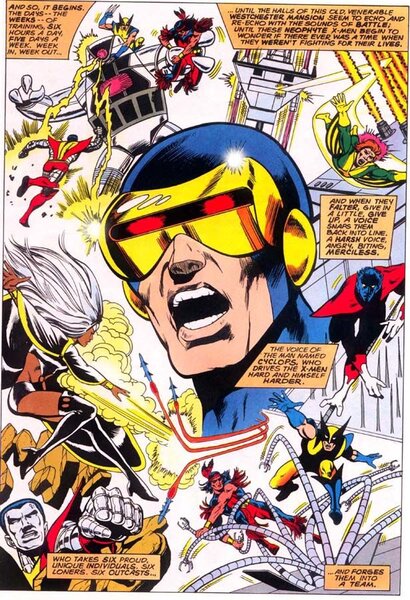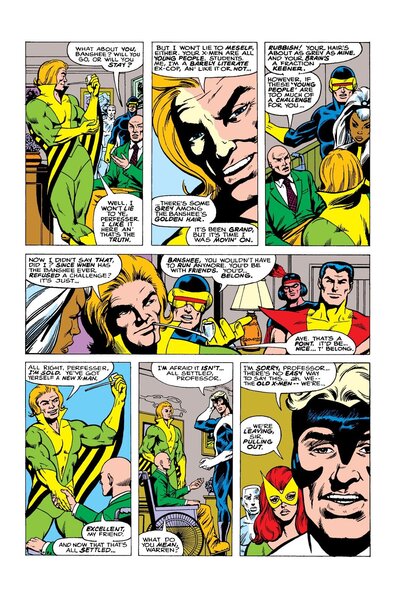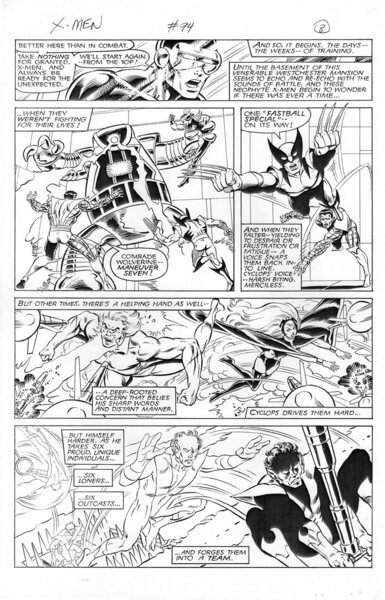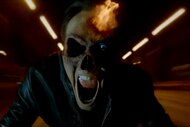Create a free profile to get unlimited access to exclusive videos, sweepstakes, and more!
Inking history: Bob McLeod recalls working on the legendary X-Men #94
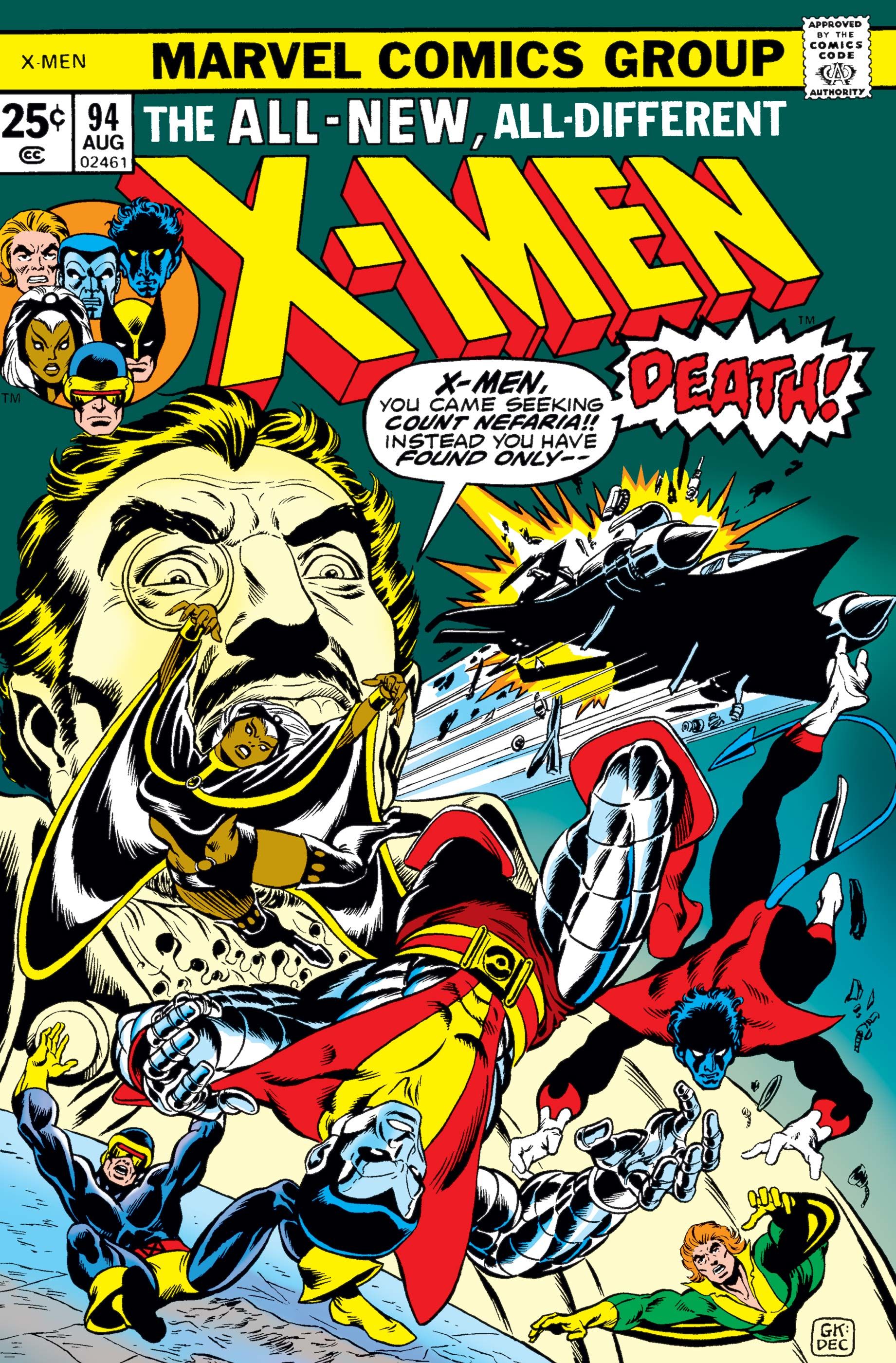
"Sometimes history takes things into its own hands."
This quote by Thurgood Marshall, the first African-American to become a Supreme Court justice and an integral figure in the Civil Rights movement, speaks to the inevitability of history. But it also can be taken to explain how milestones happen in unexpected ways that catch everyone, especially those directly involved, off guard.
Forty-five years ago, Marvel's ongoing X-Men series resumed publication of new stories with issue #94. Because of its cover date of August 1975, this meant the issue actually hit newsstands sometime in May, so this week, we celebrate!
The issue featured the start of a two-part storyline with the All-New, All-Different mutants that had debuted a few months earlier in Giant-Size X-Men #1. The team was trying to stop old X-foe Count Nefaria from using nukes to blackmail the world. New writer Chris Claremont and artist Dave Cockrum quickly established the frenetic pacing that would become a hallmark of the X-Men title. By the time we got to the last page, we had seen all the old X-Men save one (Cyclops) leave, one new X-Man quit (Sunfire), two near-fistfights, one Danger Room injury, and the start of a mutant tradition (aircraft being destroyed).
Cockrum, already an established industry star, was the penciler. The inker was a fresh-faced young buck at the House of Ideas named Bob McLeod. What must it have been like for a rising talent to be part of such a momentous comic? Turned out, it was just another gig. "If I had known [how big the X-Men would become] I would have been nervous," he said. "I didn't even know enough to think about what impact it might have, that these were brand-new X-Men. They weren't the franchise that they are now."
"It was at the beginning of my career. I was still learning how to ink," McLeod recalled during a recent phone call with SYFY WIRE. "I didn't really know what I was doing. The reason they gave it to me, honestly … in '75 there weren't many inkers working in a style similar to Dave's. There was Tom Palmer, there was Klaus Janson, and Dick Giordano, and that was about it. I'm assuming that Dick, Klaus and Tom were busy on other projects. They must have offered it to them first."
McLeod would make history years later as co-creator of The New Mutants. But back in 1975, his first crack at Charles Xavier's pupils was, by his own admission at least, not great. "If it had been a year later, I think I would have done a better job," he said. "Dave, by the way, didn't like my inking on it. That's why I didn't ink the next issue."
Looking back on his efforts 40+ years ago, McLeod recalled one member of the team in particular that gave him fits. "I didn't like [Banshee's] costume, I didn't like his hair," he said. "I think he's probably the one I did the worst on. I mean, I'm just looking at him [now] and I cringe when I look at it."
McLeod didn't lose any sleep over not getting another X-issue. In those days, pencilers and inkers just moved on to another assignment. That's always been the nature of comics but especially in the dysfunctional '70s, when Marvel had way too many titles and too few editors to keep production running smoothly. Someone who could do quality work and meet deadlines like McLeod always had jobs thrown his way. He would go on to work on most of the major Marvel books, from The Incredible Hulk to Conan the Barbarian and Star Wars. He was a key figure in some of the top Superman books of the 1990s. The fact that he worked on what turned out to be a milestone book — one that not only relaunched the ongoing series, but also began Claremont's historic 16-year run on X-Men — didn't really register with him for a long time.
Having gotten his foot in the door at Marvel at the recommendation of none other than Neal Adams, McLeod admits he was not lacking in confidence at that point in his career. So working on a mid-level title, which X-Men certainly was at the time, didn't frazzle him at all. "If I had to ink John Romita on Amazing Spider-Man, that might have been something," McLeod said.
He certainly is aware of the importance of X-Men #94 now and how it's regarded as a major turning point for the mutant franchise. It's one of the comics he's asked to sign the most at conventions. But given where he was at that point in his professional development, it's hard to give it too much personal importance. "When I think about my work, I tend to think about the ones that I'm proud of my work on, that I think I did a good job," he admitted, "And this one isn't one of those, so I don't think about it much."
The next time he had the opportunity to ink Cockrum's version of the X-Men came seven years later in Marvel Fanfare #3. Cockrum liked that job much more than their first team-up, according to McLeod. A few years after that, he got a second chance at his first X-Men issue when he inked some of the supplemental pages added to the issue of Classic X-Men that reprinted #94.
It's not often one gets a do-over on something they did early on in their career, but McLeod did. Maybe that's helped him cut his younger self some slack. And perhaps it just took him some time to appreciate his role in an issue that is a major mile marker in comics. After all, it's hard to appreciate history when you're busy making it.
"A year into my career, how bad can I feel that I did okay this early on?"
If you want to learn more about Bob McLeod's incredible career — from all his various Marvel work, including his iconic inks on the "Kraven's Last Hunt" storyline, his DC list of credits and his cool kids' book, Superhero ABC — check out his official website. And of course, I'm always around to talk comics on Twitter/Facebook/Instagram.
Don't forget that Behind the Panel is a multi-platform series that can help keep you entertained during these strange and stressful times we're in. Our video series is loaded with my in-depth interviews with amazing comic book creators. The Behind the Panel podcast is an audio documentary series that provides unique insight into your favorite creators and stories. Check 'em out, we think you'll enjoy them.
The views and opinions expressed in this article are the author's and do not necessarily reflect those of SYFY WIRE, SYFY, or NBCUniversal.
